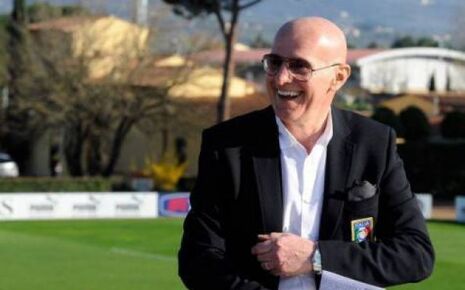What do they talk about when they’re talking about football?
“It is finally time to distinguish between the football player, the football pundit, and the football coach as three distinctive occupations”

When Arrigo Sacchi became manager of AC Milan in the late 1980s, a reporter asked him how an amateur, part-time footballler could ever hope to be a great manager. “I didn’t realise”, replied Sacchi, “that in order to be a jockey you first had to be a horse”.
Sacchi went on to become AC Milan’s most heralded manager, winning the Serie A title in his debut season, followed by back-to-back European Cups. Multiple successful managers have since proven his quip right; Sir Alex Ferguson was never anything more than a mediocre footballer, while José Mourinho had no footballing career to speak of. Clearly, great managers can come from anywhere, and clubs have realised this. So, why has nobody realised that the same story is true of football pundits?
Gary Neville’s managerial debut has been more inept than the introduction to a Republican candidacy debate, and just as embarrassing. An excellent footballer he may have been, and an even better pundit, for that matter, but when it comes to management, at least at this stage, something is clearly lacking.
It has been suggested that Neville’s tactical inadequacies as a manager – and one needs only to witness the way Valencia were set up against Barcelona last week for this to be proven – undermine what he said as a pundit. After all, how can someone who seemed to have all the answers in the cushy studio fail to find any answers on the touchline?
However, Neville’s failure in management, and that of fellow pundit Alan Shearer (eight games, six losses and one relegation), prove not that he had no idea what he was talking about, but that the skills required of a pundit and a manager are decidedly different. A pundit analyses games and proposes tactics; a coach manages the players day after day and has to implement them.
The inane, uninspired, unhelpful and unimaginative punditry of former players like Jermaine Jenas or Michael Owen further reinforces the point that managers, players and pundits are different jobs that require different skills. François Truffaut aside, film critics are rarely ever film directors. And horses are even less likely to be jockeys.
That is not to say that great players cannot be great managers or great pundits. Certainly, Franz Beckenbauer is testimony to the former, the only man to win the World Cup as a player and coach, and Gary Neville is testimony to the latter. Yet their post-footballing success is not because of the fact that they were great players; it simply coincides with it.
The clever and nuanced punditry of sports journalists reinforces this point. One needs only to think of Raphael Honigstein or Gabriele Marcotti at BT Sport and occasionally ITV. A successful pundit is one who knows about football, not someone who has played football; to employ journalists who have spent their whole career watching and analysing football matches is a no-brainer.
Perhaps, then, it is finally time to distinguish between the football player, the football pundit, and the football coach as three distinctive occupations, joined by a common interest, but seperated by different skills. Then we can finally live in a world without poor punditry; as for poor managers, we will always have Steve Kean.
 News / Eight Cambridge researchers awarded €17m in ERC research grants27 December 2025
News / Eight Cambridge researchers awarded €17m in ERC research grants27 December 2025 News / Downing investigates ‘mysterious’ underground burial vault 29 December 2025
News / Downing investigates ‘mysterious’ underground burial vault 29 December 2025 News / News in Brief: carols, card games, and canine calamities28 December 2025
News / News in Brief: carols, card games, and canine calamities28 December 2025 Sport / Hard work, heartbreak and hope: international gymnast Maddie Marshall’s journey 29 December 2025
Sport / Hard work, heartbreak and hope: international gymnast Maddie Marshall’s journey 29 December 2025 Interviews / Meet Juan Michel, Cambridge’s multilingual musician29 December 2025
Interviews / Meet Juan Michel, Cambridge’s multilingual musician29 December 2025






